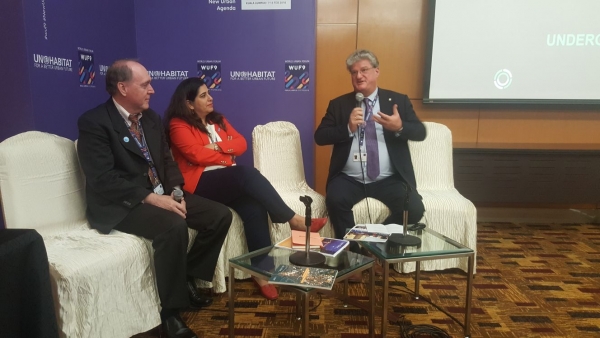In Kuala Lumpur, Malaysia, participants from 173 countries have gathered from 7 - 13 February 2018 for the ninth World Urban Forum (WUF9). Over 25,000 people registered for WUF9, and during this week, some 470 organizations and representatives of Member States took part in nearly 560 events. Out of over 1,000 applications, ITACUS was chosen to host a side-event on 'Underground Spaces for the Cities of the Future'. The side-event on Thursday 8 February, gathered over 70 people who were welcomed by ITACUS co-chair Han Admiraal.
Shipra Narang Suri of UN-Habitat stressed the importance of underground space in the urban context. The use of underground space can help cities remain compact, be energy efficient or find the space needed to include new functions in the existing city landscape, she indicated. She also pointed out the need for dialogue between professionals: 'Planning the underground space coupled with the development of legal frameworks will require planners and decision-makers to work together with new knowledge and understanding of the specific constraints and opportunities'. Her words were underlined by Ric Stephens, president of ISOCARP, the International Society of City and Regional Planners. He specifically noted the way that ISOCARP and ITACUS have developed a collaboration over the years and how the awareness of urban planners is growing on the importance of underground space.
Taking questions from the floor it became evident that there is an enthusiasm to look more at urban underground spaces. The conclusion was that the role underground space can play in implementing the New Urban Agenda now has to permeate all levels of government. Inclusive planning is needed to develop resilient infrastructure that is needed for the cities of the future as just one example of how underground space can help implement the New Urban Agenda.
Click here for a link to the programme
